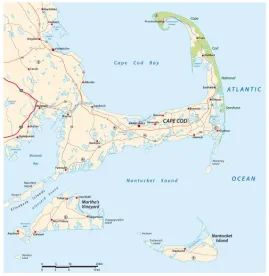Just before the Labor Day holiday, a Massachusetts Superior Court Judge allowed the Nantucket Conservation Commission to move one step closer to causing what the Town's expert called dramatic shoreline realignment on the Island's eastern shore. What the expert calls shoreline realignment you and I would call a good piece of the Island being washed into the ocean. The Judge didn't doubt this potential effect of his decision.
The Judge didn't have much of a choice. The property owners who had requested permission to construct the "soft solution" stabilizing what was a rapidly eroding coastal bank agreed to the Conservation Commission's conditions for granting that permission. The property owners then didn't comply with those conditions. And, the Judge correctly says, if those conditions aren't arbitrary and capricious (and he found these weren't), then the Court can't step on the Conservation Commission's toes, and neither can anyone else.
This is the latest chapter in a pitched battle between the Conservation Commission, the Board of Selectmen that appoints the Conservation Commission, and the property owners who have spent millions to protect their properties (and the public way that goes past them) from the dramatic effects of climate change supercharged erosion.
Putting aside what the property owners, the Conservation Commission, and the Department of Environmental Protection could have done differently here, this sad story is yet another example of how it is way too hard to implement ecologically sensitive solutions to the devastation our Green House Gas supercharged climate has done and will do to our coastlines. Massachusetts legislation is past due to address this continuing harm.
In the meantime, it will be interesting to see whether the Conservation Commission actually pulls the pin on the hand grenade it has been handed.
{Arcadis, the town of Nantucket's consultant on coastal resiliency and the possible relocation of Baxter Road in response to ongoing erosion, had previously urged caution in removing the geotubes without a strategic plan in place for the retreat of utilities, roadways, and private property. The consultant said removal of the geotubes has the potential for "rapid and dramatic" shoreline realignment.}
Judge Gildea acknowledged those concerns in his decision but emphasized that he was limited to considering whether the Conservation Commission had a legitimate and legal basis for its enforcement order to remove the geotubes.
https://www.nantucketcurrent.com/superior-court-upholds-decision-




 />i
/>i

